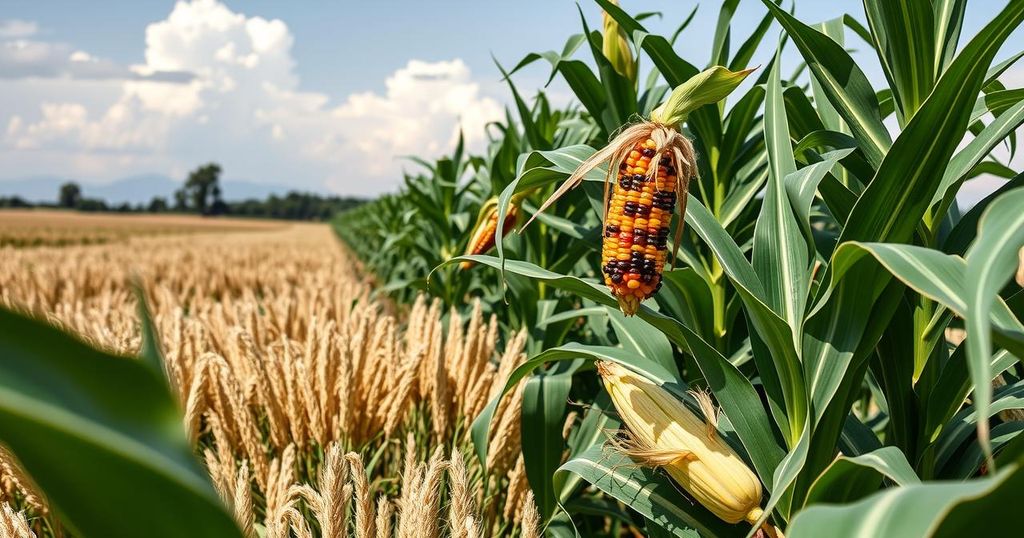Dry Weather in Argentina Elevates Soybean and Corn Prices
Recent dry weather in Argentina has led to rising soybean and corn prices on the Chicago Board of Trade, with soybeans increasing by 1.29% and corn by 0.78%. Wheat futures also saw gains due to global supply constraints. Meanwhile, Kazakhstan’s grain exports surged by 54%, highlighting changing dynamics within the agricultural market amid protests from French farmers over competitive pressures.
In recent market developments, soybean and corn futures on the Chicago Board of Trade have experienced notable increases, driven primarily by concerns over crop yields due to severe dry conditions in Argentina. Specifically, soybeans surged by 1.29%, reaching $10.04 per bushel, while corn prices rose by 0.78% to $4.54 per bushel. These price hikes come despite some recent beneficial rainfall, indicating market apprehension about the new 2024/25 harvest’s viability. Furthermore, wheat futures also saw an uptick of 0.8%, landing at $5.33 per bushel, primarily attributed to global weather-related disruptions affecting supply chains. Concurrently, Kazakhstan has increased its grain exports significantly, sending 3.7 million metric tons of new-harvest grain abroad between September and December, a considerable 54% increase from the previous year. In contrast, French farmers are voicing their dissatisfaction through protests, stemming from perceived unfair competition and stringent policies impacting their industry.
The agricultural market is significantly influenced by climatic conditions, as observed in the case of Argentina’s ongoing drought, which has raised concerns regarding the agricultural output of soybeans and corn. These fears have materialized into higher prices for these crucial commodities, demonstrating a direct correlation between weather patterns and market dynamics. Additionally, with Kazakhstan capitalizing on export opportunities in the wake of Argentina’s challenges, the global agricultural landscape is undergoing notable shifts, further complicated by growing tensions and protests among farmers in other countries, highlighting the interconnected nature of these markets.
In summary, the dry weather conditions in Argentina are propelling soybean and corn prices higher, with potential implications for global agricultural markets. The increased exports from Kazakhstan underscore shifts in trading dynamics, while the discontent among French farmers points to the broader economic challenges faced within the agricultural sector. Weather disruptions not only influence commodity prices but also have wider repercussions on international trade and domestic policies, reflecting the complex nature of agricultural economics globally.
Original Source: finimize.com




Post Comment